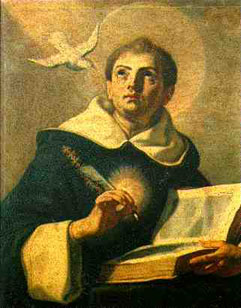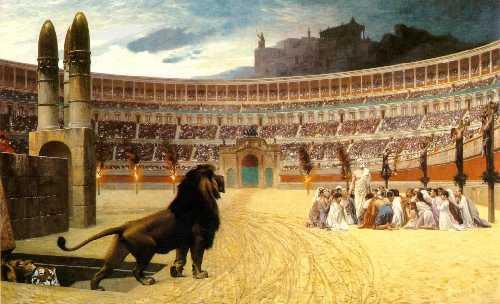The first most widely accepted proofs for the existence of God starts with St. Thomas Aquinas' writings in his book, the Summa Theologica. In this book, Aquinas gives Five Reasons for the existence of God. The first of the Five Ways is from the unmoved mover. This proof draws a distinction between potentiality and actuality of motion, and explains that an object can't will itself into existence, for wood can't will itself to burn without fire. However, this means we must arrive at a first mover, an unmoved mover who puts everything else into motion; and this is the definition of God. Aquinas writes from the Summa,
It is certain, and evident to our senses, that in the world some things are in motion. Now whatever is in motion is put in motion by another, for nothing can be in motion except it is in potentiality to that towards which it is in motion; whereas a thing moves inasmuch as it is in act. For motion is nothing else than the reduction of something from potentiality to actuality. But nothing can be reduced from potentiality to actuality, except by something in a state of actuality. Thus that which is actually hot, as fire, makes wood, which is potentially hot, to be actually hot, and thereby moves and changes it. Now it is not possible that the same thing should be at once in actuality and potentiality in the same respect, but only in different respects. For what is actually hot cannot simultaneously be potentially hot; but it is simultaneously potentially cold. It is therefore impossible that in the same respect and in the same way a thing should be both mover and moved, i.e. that it should move itself. Therefore, whatever is in motion must be put in motion by another. If that by which it is put in motion be itself put in motion, then this also must needs be put in motion by another, and that by another again. But this cannot go on to infinity, because then there would be no first mover, and, consequently, no other mover; seeing that subsequent movers move only inasmuch as they are put in motion by the first mover; as the staff moves only because it is put in motion by the hand. Therefore it is necessary to arrive at a first mover, put in motion by no other; and this everyone understands to be God.
I can't go through each one of Aquinas' Five Ways, however click here for a link to his original text, and here for a detailed explanation of Aquinas' Five Ways.

In the modern time, authors such as Alvin Plantinga's Ontological Argument and William Lane Craig's Cosmological argument have further found truth for God's existence. Plantinga's argument can be found here, and Craig's work in a YouTube video format here.

If you have any questions, be free to comment down below!
-atohme

